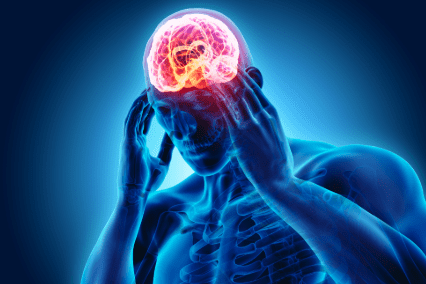The human body is a remarkable system of organs and processes that work seamlessly to maintain balance and health. Among these, the transformation of blood waste into urine is one of the most fascinating and essential functions. Although we often take this process for granted, it plays a vital role in keeping the body free from toxins and maintaining proper fluid balance. Understanding how blood waste becomes urine can give us a deeper appreciation for the kidneys and their extraordinary function.
Every day, our bodies produce waste as a result of normal metabolic activities. When cells break down nutrients for energy, they generate byproducts such as urea, creatinine, and other nitrogen-based compounds. If these substances were allowed to accumulate, they could be harmful to the body. This is where the kidneys come into play, acting as sophisticated filters that cleanse the blood and ensure that waste products are safely removed.
The journey of waste begins in the bloodstream. Blood carries nutrients, oxygen, and other vital substances to the cells, but it also transports waste that must be eliminated. The kidneys receive blood through the renal arteries, which branch off from the main aorta. Each kidney contains approximately one million tiny filtering units called nephrons, which are the core structures responsible for converting blood waste into urine. Each nephron has a complex arrangement of capillaries and tubules that work in harmony to filter blood with incredible precision.
The first step in this process is filtration. Blood enters the nephron through a network called the glomerulus, which functions like a sieve. Here, water, salts, glucose, amino acids, and waste products are filtered out of the bloodstream and into the surrounding Bowman’s capsule. This filtered fluid, known as filtrate, is essentially a preliminary form of urine. Importantly, larger molecules such as proteins and blood cells remain in the bloodstream, ensuring that essential components are not lost during filtration.
After filtration, the filtrate moves into the nephron’s tubules, where the process of reabsorption begins. The body carefully reclaims substances it still needs, such as glucose, certain salts, and water, returning them to the bloodstream. This step is highly selective and finely regulated to maintain the body’s electrolyte balance and hydration. For example, if the body is dehydrated, the kidneys will reabsorb more water to conserve fluids, demonstrating the body’s remarkable ability to adapt to varying conditions.
The final stage in transforming blood waste into urine is secretion. During this step, the kidneys actively remove additional waste products and excess ions from the bloodstream, adding them to the filtrate. This ensures that substances like hydrogen ions and potassium are kept at safe levels, preventing harmful imbalances. By the end of this process, the filtrate has been converted into urine, which contains a precise mixture of water, urea, salts, and other waste products that the body needs to eliminate.
Once urine is formed, it travels from the kidneys to the bladder through narrow tubes called ureters. The bladder serves as a temporary storage container, holding urine until the body is ready to excrete it. When the bladder reaches a certain level of fullness, nerve signals trigger the urge to urinate. During urination, urine passes through the urethra and exits the body, completing the cycle of waste removal.
Understanding this process highlights the importance of kidney health. Kidneys perform a complex balancing act that affects every part of the body. They regulate blood pressure, maintain electrolyte levels, and help control the production of red blood cells through the release of a hormone called erythropoietin. When kidney function is impaired, waste products can accumulate in the blood, leading to a condition known as uremia. This can cause fatigue, confusion, and other serious health issues, underscoring why maintaining kidney health is essential for overall well-being.
Hydration plays a crucial role in supporting the kidneys’ ability to filter blood effectively. Drinking adequate water helps maintain blood volume and allows the kidneys to flush out waste efficiently. Conversely, chronic dehydration can strain the kidneys and may contribute to the formation of kidney stones or other complications. In addition to hydration, a balanced diet low in excessive salt, sugar, and processed foods can reduce the workload on the kidneys and support their natural filtering abilities.
Regular exercise and avoiding harmful substances like tobacco and excessive alcohol also contribute to kidney health. Exercise improves blood circulation, ensuring that the kidneys receive a consistent supply of oxygen and nutrients needed for optimal function. Limiting exposure to toxins reduces the risk of kidney damage, helping them perform their vital role in waste removal.
Medical advances have also made it possible to assist or replace kidney function when necessary. Dialysis, for example, is a procedure that mimics the filtration process when the kidneys are no longer able to perform it adequately. This life-saving treatment removes waste and excess fluids from the blood, highlighting how crucial the kidneys are to survival and how advanced medical technology can support their function when needed.
Ultimately, the transformation of blood waste into urine is a remarkable example of the body’s precision and efficiency. It involves a highly coordinated series of steps that ensure the removal of harmful substances while preserving essential nutrients and maintaining balance. By understanding this process, we gain insight into the essential roles of the kidneys and the importance of lifestyle choices that support their function.
In everyday life, paying attention to the signs of kidney stress can make a significant difference. Fatigue, changes in urination patterns, swelling, and high blood pressure may all indicate that the kidneys are under strain. Early detection and intervention can prevent long-term damage and promote overall health. Consulting a healthcare professional and adopting healthy habits can help maintain kidney function and ensure that blood waste continues to be efficiently transformed into urine.
The next time you drink water or feel the urge to urinate, it is worth appreciating the intricate process happening inside your body. Each time your kidneys filter blood, reabsorb nutrients, and remove waste, they are performing a task critical to your health and vitality. Understanding how blood waste becomes urine not only provides insight into human biology but also encourages us to care for the organs that tirelessly protect us from the inside out.
In conclusion, the journey of blood waste from the bloodstream to urine is an intricate process that safeguards our health in countless ways. From the initial filtration in the glomerulus to the precise reabsorption and secretion in the nephron, and finally to the excretion of urine, every step is a testament to the body’s remarkable ability to maintain balance. By staying hydrated, eating a balanced diet, exercising, and avoiding harmful substances, we can support our kidneys and ensure that this vital process continues smoothly throughout our lives. Appreciating the hidden work of our kidneys can inspire us to take simple but meaningful steps to protect them, ensuring a healthier and more vibrant life.






